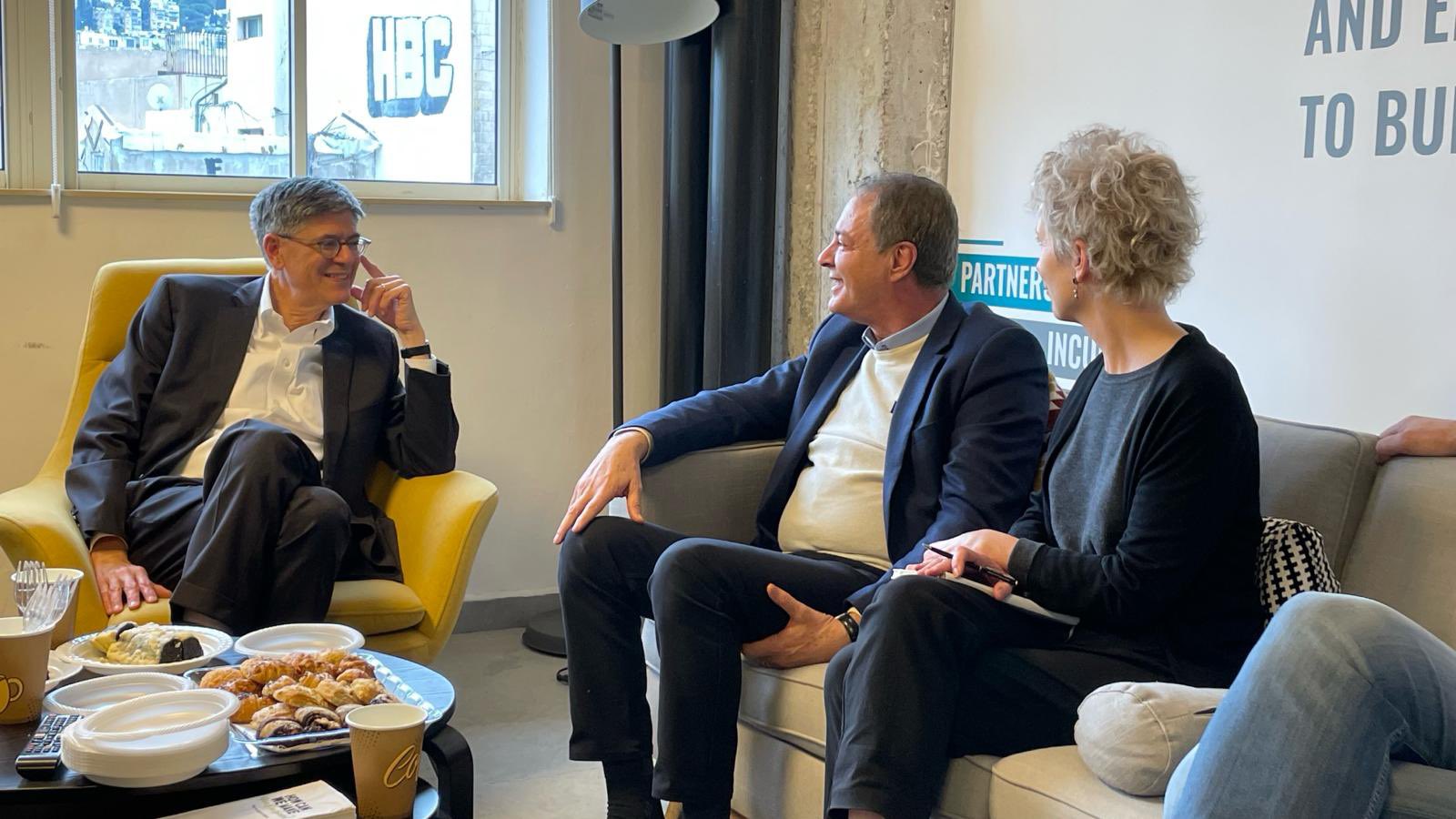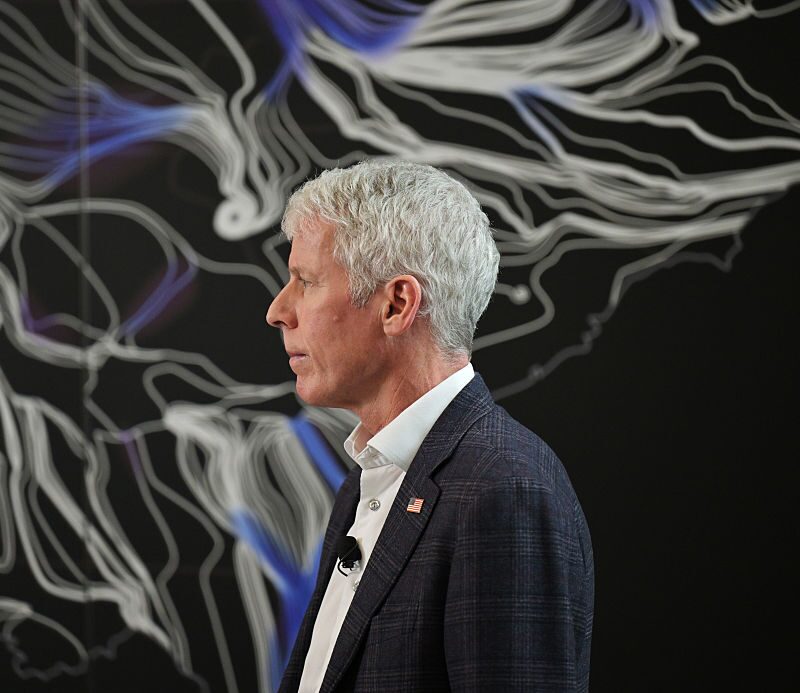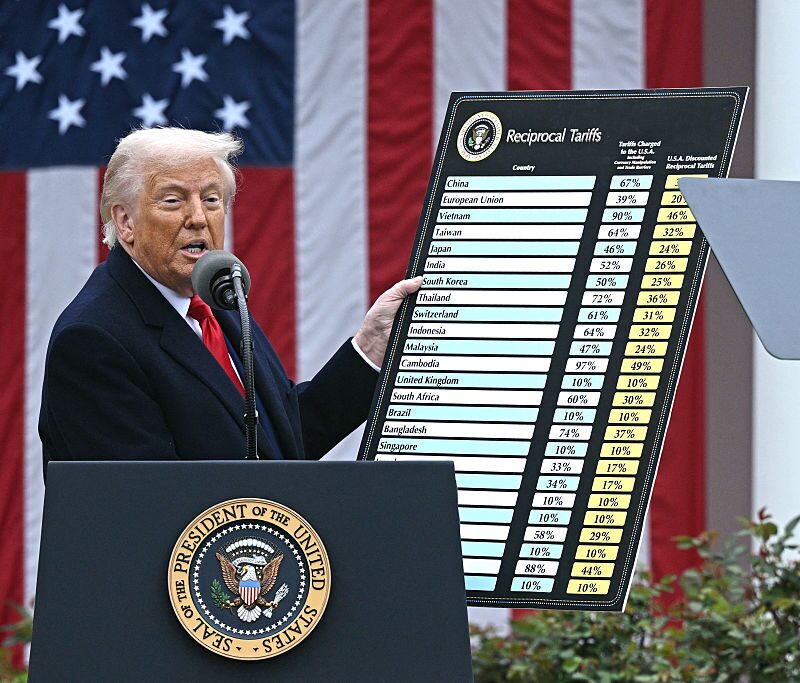
U.S. Embassy/X
Takwin Ventures helps Israel’s Arab tech entrepreneurs navigate obstacles
Co-founded by two of the country’s top venture capital firms, Takwin supplies Arab startups in Israel with seed funding, office space and introductions
HAIFA, Israel – Waseem Geraisy, co-founder and CEO of medical device startup Sorlis, worked for 15 years as a business consultant at a variety of small companies before taking steps to acquire the skills and contacts he needed to build an Israeli tech firm.
Like other Arab entrepreneurs, Geraisy, 38, recognized the obstacles. Among them, Israel’s bountiful startups largely emerge from a close-knit ecosystem cultivated in the army’s intelligence technology branches. Arab citizens, who make up 21% of the population, are exempt from military service and miss out on the networking culture generated there.
Enter Takwin Ventures, a project co-founded by two of Israel’s largest venture capital firms, which tries to fill in the gaps and give Arab companies the support and funding they need. Geraisy, whose company has developed a device for the early detection of bed sores, was accepted to Takwin’s 3D Generation program in 2022 and is now trying to raise $5 million to get it off the ground.
“We had few useful connections,” Geraisy told The Circuit. “3D Generation gave me the opportunity to meet people I would not have met anywhere else.”
Takwin, Arabic for genesis, was co-founded in 2015 by Imad Telhami, a veteran Arab executive at Israel’s Delta Galil Industries, a textile maker with factories in Egypt and Jordan. With backing from Erel Margalit, founder of Jerusalem Venture Partners and a former member of the Israeli Parliament, and Chemi Peres, chief of Pitango VC and the son of former Prime Minister Shimon Peres, Telhami grounded Takwin on the principles of ambition and growing a tough skin.
“You need to have the courage to dream big if you wish to build a company,” Telhami told The Circuit. “An entrepreneur cannot think like a victim.”
In Geraisy’s case, Takwin sent him to 3D Generation’s six-month academic program at Reichman University north of Tel Aviv in Herzliya, Israel, where he mixed with industry mentors and other participants, eventually brainstorming with them and co-founding Sorlis.
Dr. Nardeen Zoubi, an Arab woman who also participated in the Takwin program, is Chief Medical Officer. Rafi Rabinovitz, a mechanical engineer and startup veteran who was Geraisy’s mentor at Takwin, joined Sorlis as Chief Science Officer. He brought in Micha Nisani as Chief Technology Officer after the two were senior executives at Given Imaging, one of Israel’s best-known medical device startups. The company, which pioneered the field of capsule endoscopy with its swallowable pill-sized camera, is now a unit of Dublin, Ireland-based Medtronic.
Sorlis received $1 million in seed funding, split evenly from the Takwin 2 fund and a grant from the government’s Israel Innovation Authority. Geraisy said the company will seek to obtain FDA approval for the device and raise $5 million in a Series A financing round led by Takwin.
Headquartered in the northern port city of Haifa, Takwin has provided 13 early-stage startups with a combination of funding, office space, research assistance, and connections to professional networks, Itzik Frid, Takwin’s CEO and managing partner, told The Circuit.
“We started with a social mission but we always said it is a return-based fund,” Frid said. “We are looking to make tons of money for our entrepreneurs and investors because we believe only by making huge returns will we entice young folks in the Arab sector to go into high tech – the same way it happened in [Israel’s] Jewish sector.”
Among Takwin’s other portfolio companies, Imagry makes software to guide self-driving vehicles without maps, SeismicAI makes an early warning system for earthquakes and Myndlift allows therapists to give patients guided neurofeedback remotely.
Arab business leaders in Israel saw themselves as a natural link to the broader Middle East market after the 2020 Abraham Accords that sought to normalize relations with the UAE, Bahrain, Morocco and Sudan. Among the showcased speakers at Saudi Arabia’s Future Investment Initiative conference in 2022 was Samer Haj-Yehia, then Chairman of Israel’s Bank Leumi, the country’s largest lender, now Chairman of the Strategic Advisory Board at Israel’s Vintage Investment Partners.
The Takwin office is a favorite showpiece for diplomats seeking examples of brighter prospects amid the gloom of the Middle East conflict. U.S. Ambassador Jack Lew posted photos on X after his visit to Takwin in February, hailing the “amazing joint contributions of Arab and Jewish business partnerships in Israel.”
Fadi Swidan, Takwin’s Vice President of Marketing and Business Development, said basing the firm in Haifa makes it more accessible to Israel’s Arab citizens who mostly live in the north, but makes it more remote from the center of VC gravity in Tel Aviv and Herzliya.
“That is why we needed a dedicated fund to give them a starting point, to give them access to smart money and good access to networks,” Swidan said.
Frid notes that venture capital has dried up over the past two years from Silicon Valley to Tel Aviv, making Takwin’s challenge even greater. Aiming to raise $80 million in 2022 for its Takwin 2 fund, the firm has had to lower its goal to $30 million since the Gaza war.
“If fundraising is an issue for all Israeli companies,” Frid said, “it is ten times worse for Arab-Israeli companies.”




